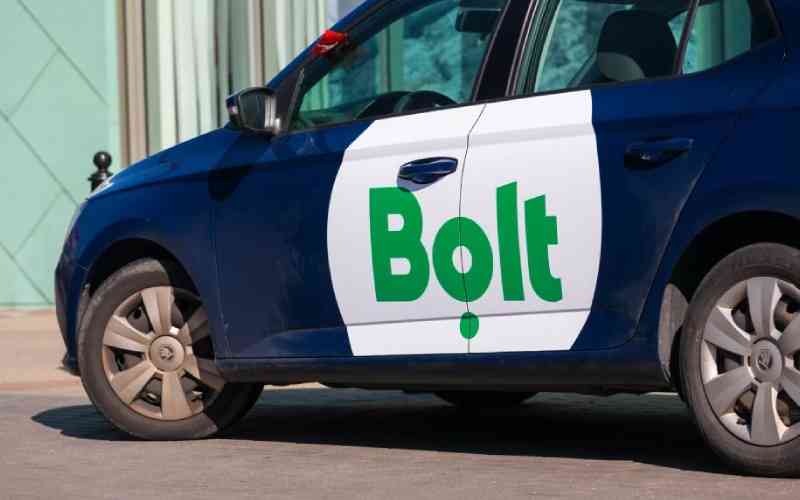Bolt unveils courier service to support Kenya's e-commerce boom

Research firm Statista projects that Kenya’s e-commerce revenue will reach $922.10 million (Sh119.2 billion) by 2025 and continue to grow to $1,087.00 million (Sh140.5 billion) by 2029.
The East African e-commerce market is booming, emerging as a significant player in Africa's digital economy.
Ranked among the fastest-growing e-commerce hubs on the continent, the region is positioning itself as a key growth driver, with Kenya leading the charge.
More To Read
- Kenya’s e-commerce penetration poised for double-digit growth on rural smartphone push - player
- Study finds Bolt’s top 50 drivers earn over Sh200,000 monthly
- Bolt rolls out dashboard cameras to boost driver-passenger safety, accountability
- New Bolt feature lets users book, pay rides for up to nine people
- IOM partners with Bolt to create safer migration pathways for migrants
- Kayole police arrest two suspects over series of robberies targeting Bolt riders
A recent eTrade Readiness report by the UN named Kenya as Africa's third-largest e-commerce market.
This growth is fuelled by widespread adoption of mobile money, technological innovations and a digitally savvy population.
Research firm Statista projects that Kenya’s e-commerce revenue will reach $922.10 million (Sh119.2 billion) by 2025 and continue to grow to $1,087.00 million (Sh140.5 billion) by 2029.
Neighbouring countries Uganda and Tanzania are also following suit, with rising internet connectivity and smartphone usage driving online shopping growth.
As East Africa's e-commerce ecosystem evolves, businesses are adopting localised, innovative solutions to meet market-specific needs.
Among them is the taxi-hailing firm Bolt, which has expanded its offerings in Kenya by launching Bolt Send, a new courier delivery service, aimed at supporting the country’s fast-growing e-commerce sector.
The solution is designed for both personal and business use.
Available through the existing Bolt app, the service allows users to request parcel pickups and deliveries just as they would book a ride, and promises fast, affordable and trackable deliveries.
Dimmy Kanyankole, General Manager for Bolt Rides in Kenya, said the move is part of the firm's broader strategy to diversify its offerings beyond passenger transport.
“Kenya’s e-commerce and logistics sectors are expanding at an incredible pace, and our parcel delivery service is designed to meet that demand,” he noted.
“We are making last-mile delivery as seamless as booking a ride, significantly enhancing speed and efficiency for our valued customers, while simultaneously unlocking new earning opportunities for our dedicated driver-partners.”
The service is being piloted in Nairobi, with expansion to other urban centres planned in the near future.
Bolt reiterates that the service is expected to enhance delivery efficiency, reduce costs for users, and contribute to Kenya’s digital economy by improving how goods are moved across cities. Overall, support the country’s e-commerce boom.
Market experts project the country’s online retail sector to post double-digit growth in the coming two years, with mobile technology at the heart of the transformation.
The country’s current smartphone penetration is estimated at 70 to 75 per cent, with the rapidly digitising population helping unlock new demand for e-commerce services, particularly in underserved rural regions.
According to Jumia’s East Africa regional CEO Vinod Goel, the combination of mobile, internet, and mobile money penetration is fuelling a notable shift in shopping habits, nudging the country's e-commerce penetration upwards.
He says the current rate of e-commerce adoption hovers at around 3-4 per cent.
Several reports put the country’s e-commerce penetration at about 46.7 per cent early this year, and it is projected to grow to 53.6 per cent by the end of the year, according to the Competition Authority of Kenya.
Ideally, the double-digit growth in e-trade adoption is expected to push the penetration rate beyond 54 per cent by next year.
Top Stories Today














































